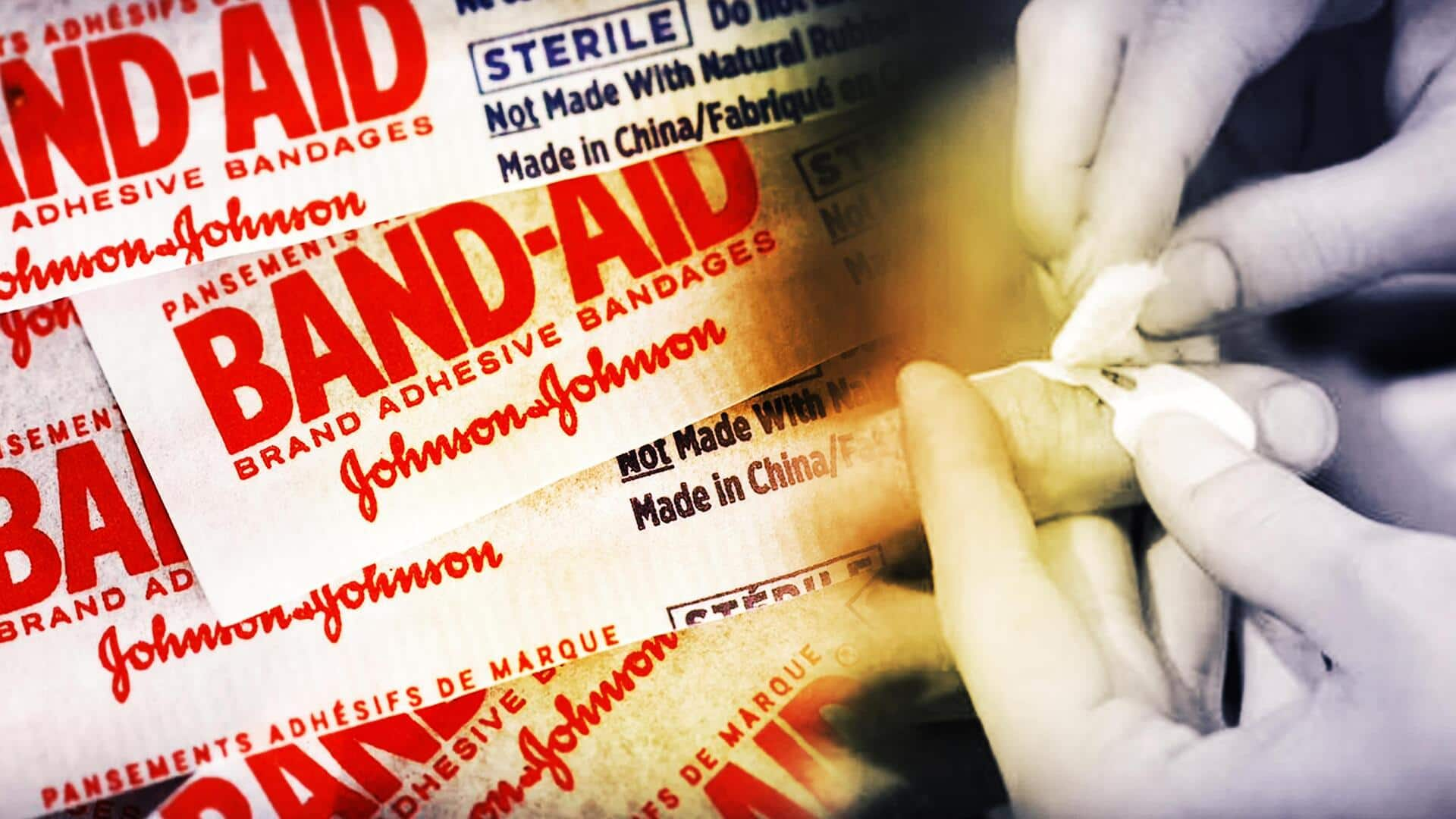
Cancer-causing chemicals found in popular bandage brands: Report
What's the story
A recent research has revealed the presence of potentially harmful chemicals in bandages from well-known brands such as Band-Aid and CVS Health.
The report said the chemical, organic fluorine, is a key indicator of per-and polyfluoroalkyl substances (PFAS).
Notably, PFAS is linked to numerous health issues including weakened immune system, developmental problems in infants, certain types of cancer, reduced fertility, and endocrine disruption, among others.
Research findings
Study reveals high levels of organic fluorine in bandages
The study, conducted by Mamavation in collaboration with EHN.org, found detectable levels of organic fluorine in approximately 26 different bandages tested.
The levels ranged from 11 parts per million (ppm) to 328 ppm. These chemicals can reportedly enter the bloodstream through open wounds, potentially leading to a variety of health issues.
Linda S Birnbaum, former director of the National Institute of Environmental Health Sciences, has expressed concern over these findings.
Industry changes
Call for PFAS-free materials in bandage manufacturing
Birnbaum emphasized that PFAS is not necessary for wound care and urged the industry to eliminate these chemicals from bandages.
She advocated for the use of materials free from PFAS in bandage production.
Further, according to the study, certain brands such as 3M and Tru Colour, already produce bandages without organic fluorine or other harmful compounds.
Chemical usage
PFAS found in daily use items
Mamavation said, PFAS chemicals are used in bandages for waterproofing, despite their association with health risks.
According to Scott Belcher, associate professor with the Center for Environmental & Health Effects of PFAS at North Carolina State University, "Bandages...may have an organic fluorine content due...use of fluoropolymers...such as polytetrafluoroethylene."
Separately, the report said consumer products tested for PFAS included contact lenses, tomato sauces, sports bras, butter wrappers, fast food packaging, diapers, condoms and deodorants.
Exposure risks
Skin exposure to PFAS: A potential health risk
The National Institute for Occupational Safety and Health has conducted laboratory research suggesting that skin exposure to PFAS may carry similar health risks to ingestion of the chemicals through food or water.
However, the exact risk of skin exposure to PFAS is not yet clear.
While PFAS pollution is commonly known to be found in water, Mamavation's testing continues to uncover additional sources of exposure in everyday items.